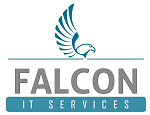Most people utilize FOSS (Free Open Source Software) daily and never realize the extent of its impact on global computing. Many well known commercial products are forks of Open Source Software. The world’s most popular browsers (Chrome and Edge) are derived from Chromium, an open source browser. In addition, many large platforms on the cloud, including email servers, CRM/ERP, project management, virtualization, document and file storage, are forks or derivatives of open source software.
The average percentage of open source in the code bases of the applications scanned grew from 36% last year to 57%, suggesting that a large number of applications now contain much more open source than proprietary code.
Free Open Source Software (FOSS) – Implementing FOSS is free for organizations as long as they have the know how to install and configure FOSS, which typically run on Linux/Unix derivatives. When an organization adopts a powerful technology, such as FOSS, there are both tangible benefits – such as cost savings, increase in efficiency, increase in accuracy, etc – and intangible benefits – such as increase in transparency, improvements in decision making etc. without monthly recurring costs associated with public cloud software platforms.
Falcon IT Services provides installation, configuration and maintenance of several FOSS platforms that can be installed at the client premise, helping to lower operating costs and increasing data privacy.
